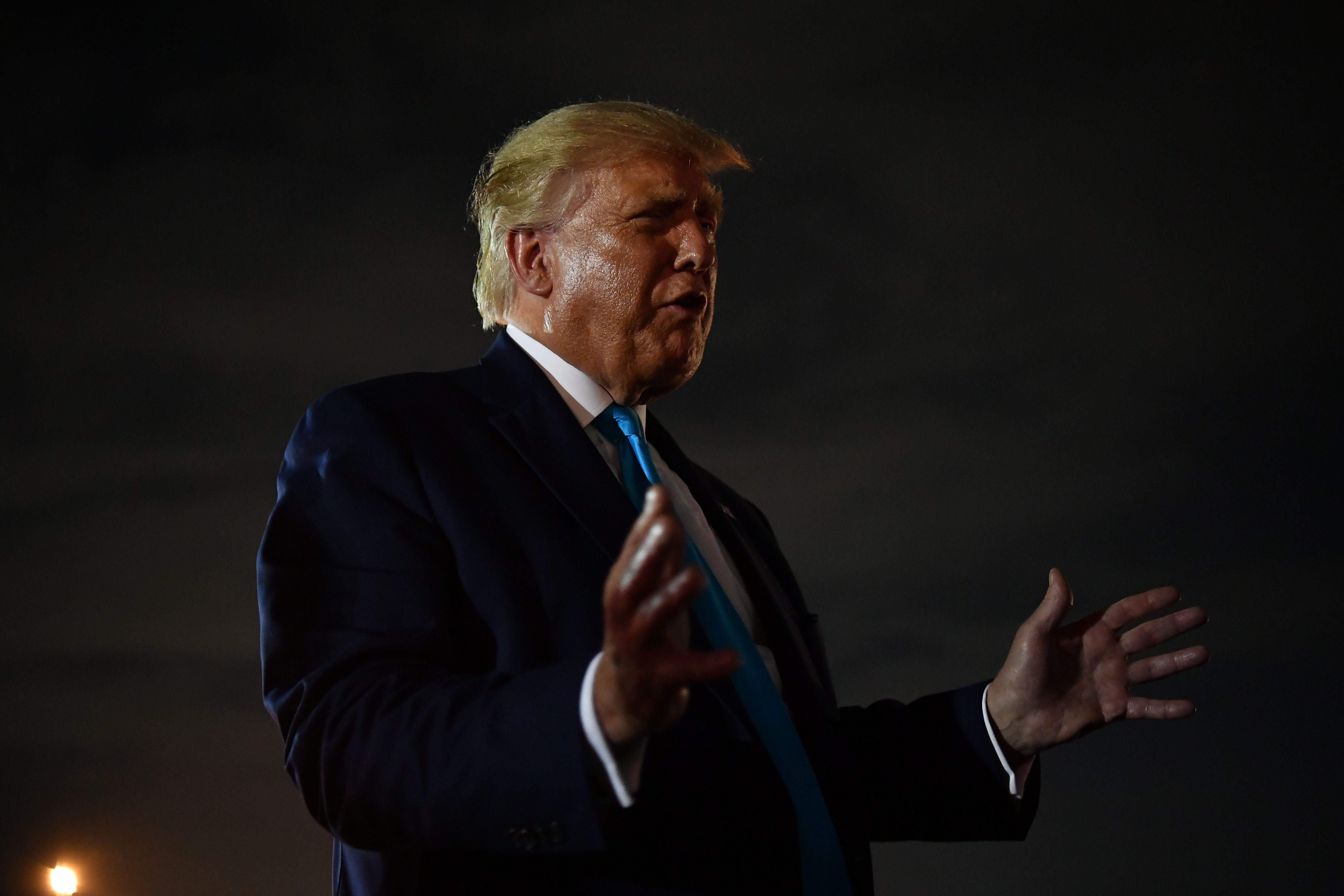The most outrageous revelations in Bob Woodward’s book ‘Rage’ aren’t the ones you’ve heard about
It’s not just lies about coronavirus. Woodward writes of the president as a man who can’t tell fantasy from reality


It’s not just the lies about Covid-19.
In Bob Woodward’s new 392-page chronicle of the Donald Trump presidency, Rage, the veteran Washington Post correspondent and author dives deep into some of the 45th president’s most consequential foreign and domestic policy choices. The book includes widely reported claims that Mr Trump knew how deadly Covid-19 was and chose to deliberately downplay it, putting the lives of millions at risk.
But elsewhere, Mr Woodward reports that Mr Trump had significant trouble distinguishing propaganda and partisan fantasy from reality.
These are some of the most worrying and eye-opening sections of the book.
Trump changed US policy towards the Palestinians after Benjamin Netanyahu showed him a crudely forged video of Mahmoud Abbas ordering murders
During one of his visits to Washington early in Mr Trump’s first year in office, the president reportedly told Israeli prime minister Benjamin Netanyahu that he believed his government, not the Palestinians, might be the real problem holding back the peace process.
But, as Mr Woodward reveals, Mr Trump’s tone shifted markedly after his first visit to Israel as president in May 2017.
During a meeting with Mr Netanyahu in Tel Aviv, White House senior advisor Jared Kushner pulled then-secretary of state Rex Tillerson into a meeting because Mr Trump was upset at a video Mr Netanyahu had showed him.
“Watch this! This is unbelievable! You’ve got to see this,” Mr Trump said to Mr Tillerson, before ordering staff to play what Mr Tillerson believed to be a crudely fabricated video of Palestinian Authority leader Mahmoud Abbas making inflammatory statements.
The video, which Mr Tillerson believed was either faked or manipulated (according to Mr Woodward), showed Abbas supposedly ordering the murder of children by stringing together out-of-context words and sentences.
“And that’s the guy you want to help?” Mr Netanyahu asked Mr Trump.
When the Israeli leader (now being tried on corruption charges) had left the room, Mr Tillerson said to Mr Trump: “Mr President, you realise that the whole thing was fabricated?”
“Well it's not fabricated,” Mr Trump replied. “They got the guy on tape saying it.”
The next day, he privately berated Mr Abbas when the two met in Bethlehem, calling him a “liar” and a “murderer” who had “tricked [him]” into believing that the longtime Palestinian leader could be trusted. The next year, he canceled nearly all US aid to the Palestinian territories and ordered the Palestinian Liberation Organisation’s office in Washington DC to be shuttered.
After he was warned that Devin Nunes was giving him false information on ‘unmasking’, Trump said he should receive the Medal of Honor
California Representative Devin Nunes made headlines early last year for his repeated allegations that Obama administration officials had improperly “unmasked” the names of Trump associates, including former national security advisor Michael Flynn.
Unmasking is the process by which high-government officials can request to have the names of Americans caught on foreign surveillance – which are normally “masked” to protect privacy – revealed in order to get a full picture of the conversation being reviewed.
The oft-repeated allegations that “unmasking” was done improperly on the orders of Obama administration officials, although baseless, have made up the bulk of the amorphous conspiracy theory Trumpworld figures have dubbed “Obamagate”, and which Mr Trump – without evidence – has called the “greatest political crime in American history”.
But when then-director of national intelligence Dan Coats tried setting the record straight on unmasking – which is a common occurrence in intelligence collection and analysis – Mr Trump was not receptive to the facts.
“Mr president, I know Devin Nunes is trying to be doing everything he can to support you. But he passes information to you that turns out to be false. In the end, it hurts you. Devin has told you something that is not true,” Mr Coats said, according to Mr Woodward. He then suggested to Mr Trump that if he were to contact the ODNI to verify information provided by Mr Nunes, it would “put [Trump] in a better position” because Coats’s office could “assess whether or not what has been said is backed up by the evidence”.
But Mr Trump, Mr Woodward writes, was uninterested in such things, and instead responded: “Devin Nunes is the most courageous person in town.”
Mr Woodward added that Mr Trump also told others he believed the California Republican – who has never served in the US Armed Forces – deserved the Medal of Honor, which is highest decoration a US service member can be awarded. According to US law, it can only be bestowed upon military personnel for “conspicuous gallantry and intrepidity at the risk of life above and beyond the call of duty”.
Trump has no interest in listening to national security experts
According to Mr Woodward, Mr Coates said the greatest threat posed to the US national security apparatus is that Mr Trump wanted to ignore any process that utilised the government’s many career experts.
“In effect, and often literally,” he wrote, “the president said: I don't need that to be done. I don't need these people. I don't need a National Security Council. I just need myself, and perhaps three or four people I trust and work with.”
Join our commenting forum
Join thought-provoking conversations, follow other Independent readers and see their replies
Comments
Bookmark popover
Removed from bookmarks